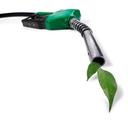Canada funds projects to improve landfill gas monitoring

September 14, 2023
BY Erin Krueger
Canada funds projects to improve landfill gas monitoring
Erin Voegele
Advertisement
Environment and Climate Change Canada on Sept. 11 awarded $575,000 to five pilot-scale projects that will implement innovative monitoring and automation systems to reduce methane emissions at Canadian landfills.
Municipal landfills are responsible for approximately 23 percent of Canada’s methane emissions. The awards, made through the government’s Emerging Approaches for Reducing Landfill Methane Emissions Fund, support efforts to reduce methane emissions at Canadian landfills. The funded initiatives aim to help landfill operators by evaluating the performance of emerging technologies, identifying the benefits and barriers to their adoption, and providing examples of how these approaches can be implemented.
Advertisement
Awards include:
- Comcor Environmental Ltd., in Cambridge, Ontario, received $49,748 to work to identify methane surface emissions and compare field method approaches and detectors at three Canadian landfills.
- Carbonaxion Bioénergies Inc., in Quebec, received $200,000 to demonstrate and validate advanced technologies for monitoring landfill gas recovery systems.
- The University of Western Ontario received $200,000 to monitor methane emissions from the City of London’s W12A Landfill using several emerging technologies.
- The City of Vancouver received $75,000 to evaluate and compare the use of several technologies for monitoring landfill methane emissions.
- Comox Valley Regional District, in British Columbia, received $51,000 to use drones for monitoring landfill gas emissions in order to assess collection efficiency and identify system leaks.
Methane emissions from landfills fluctuate over time due to various factors, including barometric pressure, operational practices, and equipment malfunctions. Detecting and repairing leaks as quickly as possible and making adjustments to optimize landfill gas recovery systems are important to help reduce emissions. Emerging drone-based monitoring technologies for landfill methane emissions and automated wellfield management systems present an opportunity to make leak detection and wellfield management easier and more effective, according to ECCC.
The effort to improve methane monitoring and leak detection is related to Canada’s effort to develop new regulations to maximize the capture and treatment of landfill gas. Canada in October 2021 announced support for the Global Methane Pledge, which aims to reduce global methane emissions by 30 percent by 2030 when compared to 2020 levels. In January 2022, ECCC published a discussion paper to seek input on proposed objectives for regulations aimed at reducing methane emissions from the country’s municipal solid waste (MSW) landfills and later that year issued a report that summarized the feedback it had received from interested parties. That report, in part, discussed ways to maximize the production of renewable natural gas (RNG) from landfill operations. A technical workgroup was formed in September 2022 to support in-depth discussions on potential elements of federal regulations. A document outlining a proposed regulatory framework was shared with stakeholders in April 2023. Those proposed regulations include requirements related to a variety of elements, including methane control monitoring and gas recovery systems, including those to produce energy or RNG.
Related Stories
Ethanol Producer Magazine has announced the keynote speakers for the 2025 International Fuel Ethanol Workshop & Expo (FEW) being held June 9-11, 2025, at the CHI Health Center in Omaha, Nebraska. The general session will take place June 10.
Surging biomass-based diesel feedstock demand has led to a boom in used cooking oil imports, and when combined with current policy mechanisms, U.S. soybean oil is at a disadvantage.
CARB has published additional proposed changes to its pending LCFS modifications, including those that aims to use of sunflower oil feedstock for biomass-based diesel production, and update regulations related to corn stover and biomethane.
The U.S. EPA, USDA and U.S. Food and Drug Administration on May 8 released a plan developed by the agencies to update, streamline and clarify their regulations and oversight mechanisms for products of biotechnology.
New Mexico will be the fourth state in the U.S. to pass a clean fuel standard.
Upcoming Events










